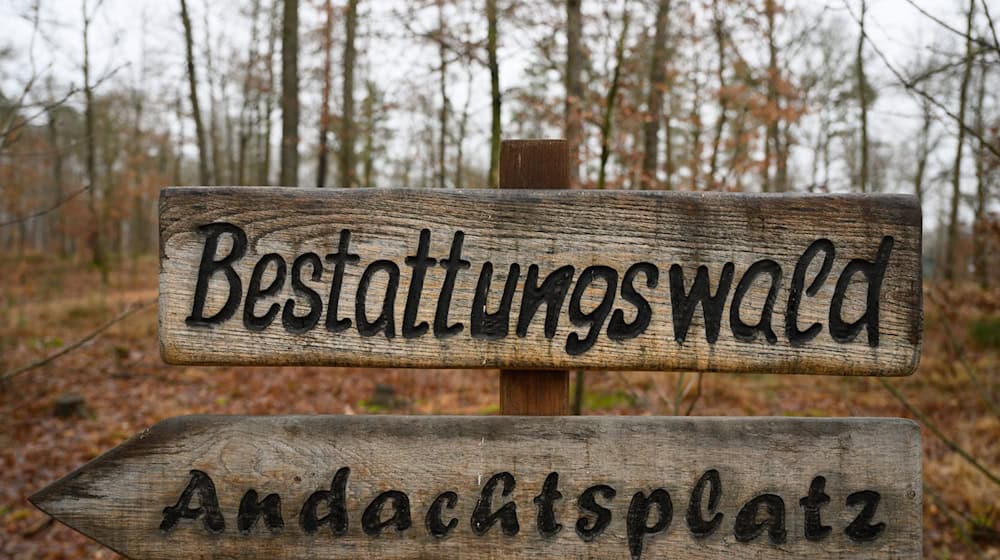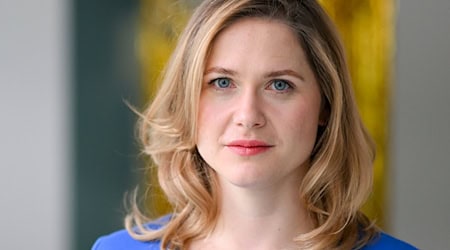A death not only brings grief, but also many organizational questions. How much does a funeral cost? Are burials in the forest allowed? Can I have a crystal made from the ashes of the deceased? The most important questions and answers:
How expensive is a funeral in Saxony?
This depends on the ideas and wishes of the relatives and varies depending on the town and municipality. Fees are incurred for the burial site, burial and care, among other things. According to the city of Dresden, cemetery fees increase regularly, but not across the board.
In Dresden, a row grave in the ground for a minimum resting period of 20 years costs around 780 euros, an urn grave around 662 euros. In Leipzig, according to the city, it is 415 euros for an in-ground grave and 208 euros for an urn grave. There is also a one-off usage fee of 420 euros. In Chemnitz, there is a charge of 423 euros for burial plots and at least 354 euros for urn plots, plus a basic fee of 85 euros.
How and where burials may take place
In general, the regulations in Saxony are comparatively strict. "There are only two types of burial in Germany. Burial or cremation," says Tobias Wenzel, head of the guild of morticians in Saxony, to dpa. And only in cemeteries or other approved burial grounds. Near-natural burial forests, so-called cemetery forests, are also an option.
As a rule, burial or cremation must take place within eight working days of the death being confirmed. "In Saxony, around 90 percent are cremations," says Wenzel. The ashes of a deceased person must be buried within six months of cremation. Saxony is also the only federal state in which coffins are still compulsory without exception. This means, for example, that burial in shrouds is not permitted. However, this regulation could soon change.
What is not (yet) permitted?
Burials in the lake, in the garden or anywhere in nature are not permitted. In other federal states, the regulations are much more relaxed: in Rhineland-Palatinate - the federal state with the most modern burial law - the ashes of the deceased may be scattered in designated areas, you can be buried in a river or keep the urn at home.
In Saxony-Anhalt and Rhineland-Palatinate, it has also been permitted for some time to remove a small portion of the ashes for dignified use or further processing into memorabilia. The ashes of the deceased can be turned into an artificial diamond or other piece of jewelry. This is not yet possible in Saxony.
In Schleswig-Holstein, so-called reburials are also being tested. In this process, the corpse is decomposed in a special container with the addition of plant materials, coal, water and oxygen and with regular tilting movements over a period of several weeks. Within 40 days, the body should be completely composted into soil.
And if it needs to be more personal or creative
According to the consumer initiative Bestattungskultur Aeternitas, the demand for alternative burials has long been on the rise across Germany. This is because the funeral industry always reflects social change. More and more crematoriums are therefore offering to be present at the cremation or to help with the care of the body.
According to the consumer initiative, funeral services can now also be arranged individually - detached from the traditional, often church-based rituals. Some funeral homes offer to paint coffins or urns themselves or to bring their own bed linen for the interior.
Will the law soon be relaxed?
According to the Saxon Ministry of Social Affairs, talks are currently underway to reform the burial law. They are "in talks with a large number of interest groups, institutions and, of course, other ministries", it said. The aim is to complete the ongoing coordination processes as quickly as possible and present the cabinet with a sustainable draft bill. A decision is to be made by the end of the year.
State Minister Petra Köpping (SPD) had already presented a draft for a new burial law in 2023. Among other things, it included a relaxation of the coffin requirement and more rights for the burial of so-called "star children" - i.e. children who die before, during or shortly after birth.
Copyright 2025, dpa (www.dpa.de). All rights reserved










